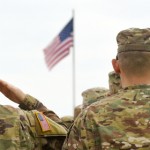On February 29, the United States is likely to sign an agreement with the Taliban, which could see some U.S. forces withdraw from Afghanistan conditional on its honouring several commitments. Some observers believe that U.S. troops will reduce from 14,000 to 8,600. Others suspect that President Trump prefers a complete withdrawal as part of his 2020 election campaign to contrast his record with President Obama’s eight years in office when U.S. troop levels doubled.
One could be forgiven for being sceptical about the Taliban’s promises. Had the Taliban delivered on their undertaking to not allow Osama bin Laden use of Afghan territory for terrorist purposes 9/11 would not have happened. This time, the Taliban will be asked to: observe a reduction of violence; negotiate with the Kabul government; cut ties with terrorist groups such as the al-Qaeda; and possibly even preserve the advances in female education since 2001. However, the U.S.’ negotiating position is so weak that the Taliban have refused to talk to the Afghan government and the U.S. has relented. The Taliban know that Trump is keen to leave. They just need to wait.
Pakistan, whose support for the Afghan Taliban played such a key role in NATO’s defeat in Afghanistan, has become the facilitator of the deal. As President Trump said of Prime Minister Imran Khan in Washington in July 2019, “Pakistan’s going to help us out to extricate ourselves.”[1]
The Pentagon will wish to retain counter-terrorist capabilities in the region. If based in Afghanistan, these will require some defensive infrastructure. A better option might be to locate them in Pakistan or one of the Central Asian Republics. Aircraft, drones, helicopters, and Special Forces will likely be minimum requirements together with intelligence resources. However, in the U.S., debate is active on whether there remains a genuine international terrorist threat from Afghanistan and whether it justifies such expenditure.
One area where the U.S. and Taliban may have a common objective is in defeating the Islamic State in Afghanistan, known locally as the Khorasan Group (ISK). Although some ISK fighters are former members of the Taliban, relations between the groups have been generally antagonistic, evident in the frequent fighting that broke out between them in Nangahar province, in 2019. However, the Taliban will be wary of accepting U.S. support and will continue to argue for a full U.S. withdrawal.
Whichever way one looks at the situation, the outcome will be the end of the long Afghan campaign, which began in 2001. In the early days, the West was successful in expelling the al-Qaeda from Afghanistan. Only in 2006 did the North Atlantic Treaty Organisation (NATO) begin to sustain significant losses. In retrospect, they stayed on too long and began to fight the Taliban, most of whom were local Pashtun tribesmen rather than international jihadists. Their hunger to win was always going to outlast NATO’s willingness to stay, even after NATO transitioned from a combat mission to a supporting role for the Afghan security forces.
The forthcoming withdrawal from Afghanistan may conjure up images of January 1842 when a British army marched out of Kabul, under safe conduct, in the hope of reaching the safety of India. Some 700 British and 3,800 Indian soldiers were massacred in the snow-covered passes along with some 14,000 camp followers. Famously, only Surgeon Major William Brydon survived, riding into Jalalabad on his exhausted pony, although some 120 prisoners also escaped the slaughter.
The retreat of 2020 has a few parallels with 1842. During their 18-year-stay in Afghanistan. the Western forces have lost nearly 3,500 troops in action and about six times that number have been left with life-changing injuries. The assurances provided to the departing British forces were ignored in 1842 as will be the undertakings to the Americans in 2020.
Another similarity is that both campaigns ended in Western defeat. President Trump will dress this withdrawal up as a success, but it is important that the West learns the lessons of Afghanistan. The sophisticated network-enabled capabilities (NEC) of a modern army were defeated by relatively uneducated people, using Improvised Explosive Devices (IEDs). The Russians, Iranians and others have watched NATO’s failings and developed the concept of hybrid warfare whereby weaker groups or nations can prevail against the great powers.
The Taliban (and Pakistan) always knew that the West had no stomach to take heavy casualties. The French lost the will to stay after a single ambush in 2008 which killed 10 and wounded 21 men. The British agonised over whether the loss of a single helicopter full of troops would lead to a public and political clamour for withdrawal. This never happened but the regular flow of coffins took a toll on popular belief in the war. Politicians found it hard to explain in simple terms what the West was doing there. Was it to defend the homeland against terrorism; or was it to improve the lives of the Afghans?
The U.S. withdrawal is inevitable and much of the progress made in Afghanistan since 2001 is likely to be lost. The Afghans have suffered grievous losses and now just want peace. Whether the Taliban will allow peace remains to be seen but most Afghans seem willing to take the chance.
Tim Willasey-Wilsey is Visiting Senior Research Fellow at King’s College London, a former British diplomat and a member of the Chatham House Council.
This article was exclusively written for Gateway House: Indian Council on Global Relations. You can read more exclusive content here.
For interview requests with the author, or for permission to republish, please contact outreach@gatewayhouse.in
© Copyright 2020 Gateway House: Indian Council on Global Relations. All rights reserved. Any unauthorized copying or reproduction is strictly prohibited.
References
[1] White House, ‘Remarks by President Trump and Prime Minister Khan of the Islamic Republic of Pakistan Before Bilateral Meeting’, United States Government, 22 July 2019, /www.whitehouse.gov/briefings-statements/remarks-president-trump-prime-minister-khan-islamic-republic-pakistan-bilateral-meeting/


